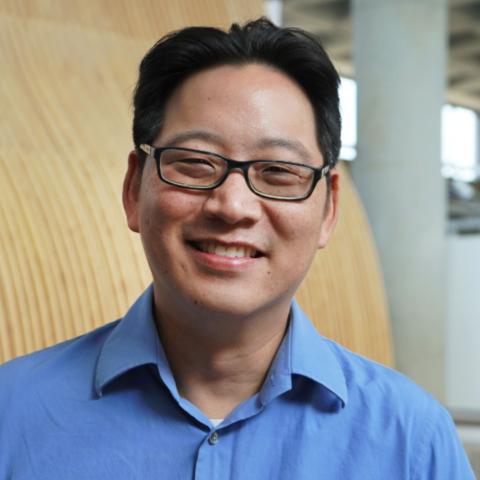Vijay Madisetti



Christopher J. MacLellan is an Assistant Professor in the School of Interactive Computing at Georgia Institute of Technology, where he leads the Teachable AI Lab (TAIL; https://tail.cc.gatech.edu). His work on cognitive systems aims to advance our understanding of how people teach and learn and to build AI systems that can teach and learn like people do and in ways that are compatible with people. He explores the development of computational models of learning and how these models can support the development of AI technologies, such as intelligent tutoring systems and medical decision support systems, at scale.
He also investigates how data collected about how people learn and make decisions can be leveraged to drive the development of better cognitive models and computational learning systems. Chris has been a principal investigator on multiple sponsored project awards with DARPA, the U.S. Army, ONR, and NSF. He has also received external recognition for his work, such as the 2022 EAAI Now and Future AI Educator award as well as being named on the 2021 Technical.ly RealLIST of technologists building Philadelphia’s future.
Prior to his position at Georgia Tech, Chris was an Assistant Professor of Information Science and Computer Science (by co-appointment) at Drexel University. Before that, he completed his PhD in Human-Computer Interaction at Carnegie Mellon University's School of Computing, where he was a fellow in the Program for Interdisciplinary Education Research (PIER).
The products of his work have immediate implications for AI-powered technology development. For example, through his work with the NSF-funded AI ALOE Institute, Chris is developing tools that let teachers build AI-powered tutors by naturally teaching an AI agent rather than programming. His work also has many broader implications, such as enabling doctors to support the development of AI-powered diagnoses tools where few training examples are available (DARPA-funded POCUS project) and for creating personal assistant agents that can engage in collaborative learning to support more effective human-machine teaming (ARL-funded STRONG project).
Research Areas:
Artificial Intelligence; Cognitive Systems; Cognitive and Learning Sciences; Human-Computer Interaction; Learning Technology.

Yanni Loukissas is an Associate Professor of Digital Media in the School of Literature, Media, and Communication at Georgia Tech. His research is focused on helping creative professionals think critically about the social implications of emerging technologies. His forthcoming book, All Data Are Local: Thinking Critically in a Data-Driven Society (MIT Press, 2019), is addressed to a growing audience of practitioners who want to work with unfamiliar sources both effectively and ethically. He is also the author of Co-Designers: Cultures of Computer Simulation in Architecture (Routledge, 2012) and a contributor to Simulation and its Discontents (MIT Press, 2009). Before coming to Georgia Tech, he was a lecturer at the Harvard Graduate School of Design, where he co-coordinated the Program in Art, Design and the Public Domain. He was also a principal at metaLAB, a research project of the Harvard Berkman Center for Internet and Society. He has taught at Cornell, MIT, and the School of the Museum of Fine Arts. Originally trained as an architect at Cornell, he subsequently attended MIT, where he received a Master of Science and a PhD in Design and Computation. He also completed postdoctoral work at the MIT Program in Science, Technology and Society. Website: http://loukissas.lmc.gatech.edu/

Alain Louchez is the Managing Director of the Center for the Development and Application of Internet of Things Technologies (CDAIT pronounced sedate) in charge of directing the Internet of Things (IoT)-related development efforts across the Georgia Institute of Technology (Georgia Tech). He is a member of the Advisory Council of the Georgia Tech Center for International Business Education and Research (CIBER) and the Georgia Tech Lorraine (European campus) Advisory Board.
Prior to joining Georgia Tech, he held various executive positions including Vice President for BellSouth (now AT&T) Europe; Executive Director of BellSouth France, and General Manager of GTE/Verizon Media Ventures’ wireless video operations in Hawaii. Most recently, he was Vice President of Strategic Management at Numerex, a company focused on machine-to-machine communications (M2M). He was instrumental in the development of the M2M Standardization Task Force at the Global Standards Collaboration.
Alain served on the board of directors of France Telecom Mobiles Data (France Telecom’s wireless data subsidiary); Cofira (Videndi’s founding parent of SFR, France’s second largest telecommunications operator); Com-Dev (a subsidiary of the Caisse des Dépôts et Consignations group in charge of cable TV), SINEDI/Com-Dev Images (a holding company dedicated to investments in some French thematic TV channels such as Canal J, Planète, CinéCinéma, etc.) and Datech (BellSouth’s French direct marketing subsidiary).

Wayne K. Li is the James L. Oliver Professor, which is a joint position between the Colleges of Design and Engineering. Through classes and the Innovation and Design Collaboration (IDC), he leads joint teaching initiatives and advances interdisciplinary collaboration between mechanical engineering and industrial design. Endowed by School of Industrial Design alumnus James L. Oliver, II (BS ID 1965, ME 1967), the Oliver professor embodies the idea of "multidisciplinary." Li teaches students that design behavior bridges the language and ideological gap between engineering and design. Li’s research areas include ethnographic research, multidisciplinary online education, and human-machine interaction in transportation design.
Previously, Li led innovation and market expansion for Pottery Barn seasonal home products, was an influential teacher in Stanford University’s design program where he taught visual communication and digital media techniques, led “interface development” in Volkswagen of America’s Electronics Research Laboratory, and developed corporate brand and vehicle differentiation strategies at Ford Motor Company.
He received a Master of Science in Engineering from Stanford University, and undergraduate degrees in Fine Arts in Design and Mechanical Engineering from the University of Texas at Austin.

Participatory Design; Values in Design; Human-Centered Computing; Community Computing and Informatics; Urban Computing

Debra Lam is the Founding Director of the Partnership for Inclusive Innovation, a statewide public-private partnership committed to investing in innovative solutions for shared economic prosperity. She continues to lead smart communities and urban innovation work at Georgia Tech. Prior to this, she served as Pittsburgh’s inaugural Chief of Innovation & Performance where she oversaw all technology, sustainability, performance, and innovation functions of city government. Before that, she was a management consultant at a global engineering and design firm, Arup. She has received various awards, including being named one of the top 100 most influential people in digital government by Apolitcal.
She has worked and lived in the United Kingdom, China, Taiwan, and Hong Kong. A graduate of Georgetown University and the University of California, Berkeley, Debra serves on the board of the Community Foundation of Greater Atlanta and was most recently appointed by the U.S Department of Commerce to the Internet of Things Advisory Board.

Neha Kumar is an Associate Professor jointly appointed at the Sam Nunn School of International Affairs and the School of Interactive Computing at Georgia Tech. Her research lies at the intersection of human-computer interaction and global sustainable development, with a focus on global health and community informatics. Her work contributes feminist perspectives to the design and integration of emerging technologies across marginalized contexts in the Global South.
Her research has been recognized by multiple ACM Best Paper and Honorable Mention awards. Neha received the College of Computing's Lockheed Inspirational Young Faculty Award (2017) and the Lockheed Excellence in Teaching Award (2019). She currently serves as the President of ACM SIGCHI. She earned her Ph.D. in Information Management Systems from UC Berkeley, Master’s degrees in Computer Science and Education from Stanford University, and Bachelor’s in Computer Science and Applied Math from UC Berkeley.
Human-Computer Interaction for Global Development

Selected recent publications:
➤ Robert G. Mannino, Eric J. Nehl, Sarah Farmer, Amanda Foster Peagler, Maren C. Parsell, Viviana Claveria, David Ku, David S. Gottfried, Hang Chen, Wilbur A. Lam, and Oliver Brand, “The critical role of engineering in the rapid development of COVID-19 diagnostics: Lessons from the RADx Tech Test Verification Core” Science Advances. 9, eade4962 (2023). https://www.science.org/doi/10.1126/sciadv.ade4962
➤ Liu ZL, Bresette C, Aidun CK, Ku DN. (2021) SIPA in 10 milliseconds: VWF tentacles agglomerate and capture platelets under high shear. Blood Advances doi.org/10.1182/bloodadvances.2021005692
➤ Kim DJ, Ku DN. “Structure of shear-induced platelet aggregated clot formed in an in vitro arterial thrombosis model” Blood Adv (2022) 6 (9): 2872–2883. doi.org/10.1182/bloodadvances.2021006248
➤ Kim DJ, Bressette C, Liu Z, Ku DN. Occlusive thrombosis in arteries. APL Bioengineering 2019;3, 041502. https://doi.org/10.1063/1.5115554
Licensed Patents:
➤ Ku, D.N., Wootton, D.M., Greer-Braddon, L., “Poly(vinyl Alcohol) Cryogel,” No. 5,981,826 and 6,231,605, issued May 15, 2001. Licensed; created prosthetic cartilage; acquired by Wright Medical. $645 million
➤ Denoziere, G., Ku, D.N., “Methods of Producing PVA Hydrogel Implants and Related Devices,” issued U.S. Patent No. 8,038,920, Licensed to Mimedx. Market cap >$600 million.

Jennifer Gahee Kim is an Assistant Professor in the School of Interactive Computing at the Georgia Institute of Technology. She holds a Ph.D. in Computer Science from the University of Illinois at Urbana-Champaign. Dr. Kim’s research interests lie in human-computer interaction and digital health, where she investigates how social and health information systems can be designed to promote diversity, advocacy, and empathy. With her research, she is especially passionate about impacting the lives of neurodiverse people and the communities around them.
Research Areas:
Human-Computer Interaction (HCI); Computer-Supported Cooperative Work (CSCW); Digital Health; Neurodiversity